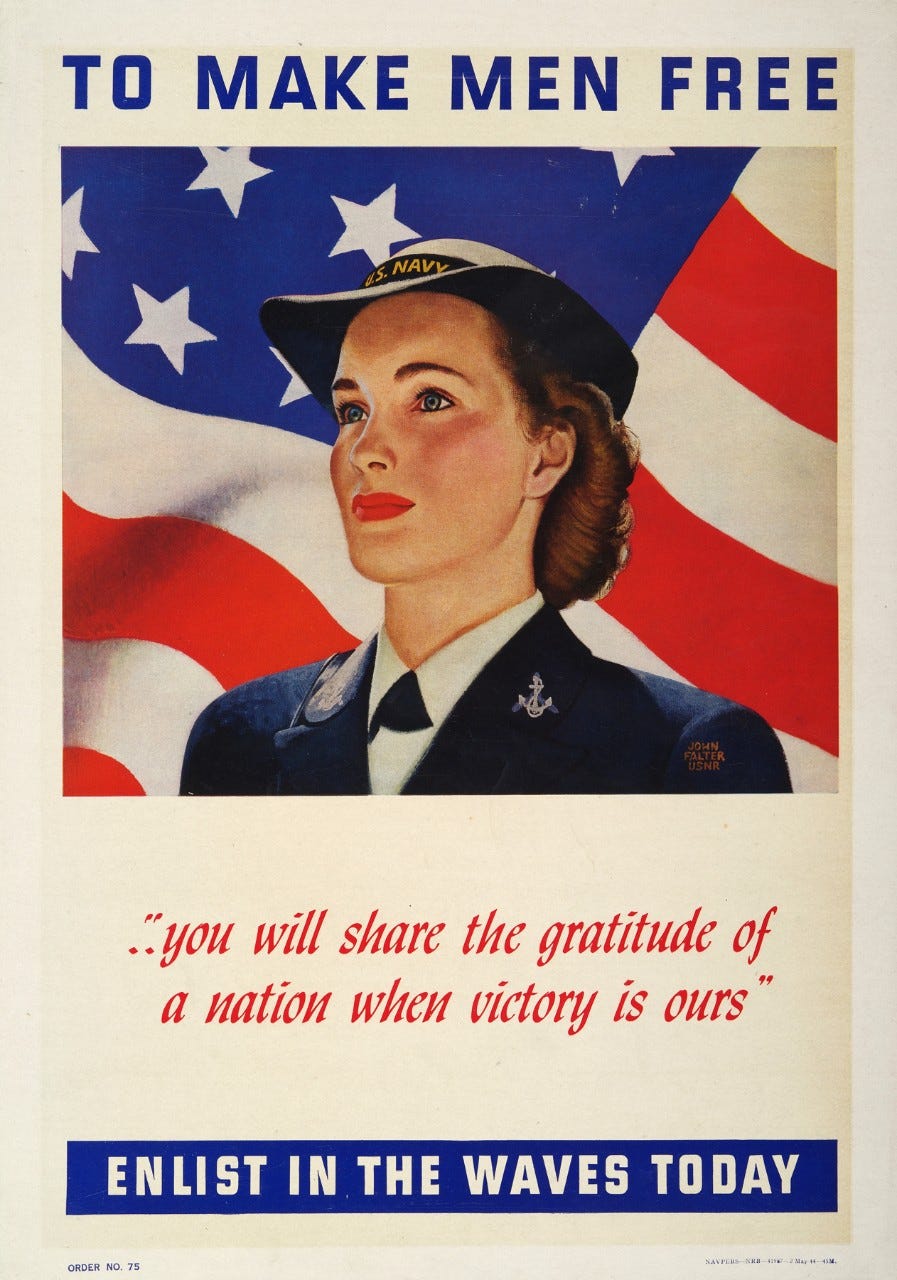The Inventions Undreamed of, the Books not Written, the Paintings Left Unpainted
History happened. It’s done – it's ended in what I think of as the world we got versus the vivid, parallel universe that might have been ...
I was asked to write a piece for LitHub about the collective amnesia around women’s accomplishments after World War II and the heartbreaking shift from wartime, where women did everything, to the world they found in peacetime, which wanted them only to be wives and mothers and housekeepers. It’s a subject that’s long infuriated me, as you’ll read in the LitHub article, and one that partly inspired me to write my latest book, The Three Lives of Alix St Pierre.
But there were some things I didn’t get to say in the article that I think are worth discussing. And it starts with the story of a conversation I had recently at a dinner party.
Someone at the table, upon finding out that I was a writer and that I’d published a few books – and after giving me that same slightly curious, wrinkle-nosed stare that people often bestow on me after discovering this – asked me what my latest book was about. So I gave them the thirty-second elevator pitch. But it turned out they were actually interested and wanted to know more, so we started discussing why I wrote the book.
At this point, the table became quiet as I strayed into the topic of how women were actively encouraged to give up their jobs to the returning men after the war. How they were told they were no longer needed. How, in fact, the poster below turned out to be a lie – women did not actually receive much in the way of gratitude from anyone when victory finally came.
(Image via Naval History and Heritage Command)
‘It makes me so mad when I think about those women who were incredibly talented, but who were told their talents were no longer required once the men were back,’ I said to everyone at the dinner party. ‘I can’t stop thinking about what the world didn’t achieve because women were discouraged from working – because they weren’t even allowed to open a bank account.’
How many inventions weren’t made, how many books weren’t written, how many paintings were left unpainted because of that?
There wasn’t even a second of silence after I finished saying those words before someone (I’ll let you guess their gender) jumped in and said, ‘But how many things wouldn’t have been made if the world had been the opposite? There’d be no credit cards, artificial hearts, even lasers. They were all invented by men after the war. You can’t have it both ways.’
‘That’s the point,’ I said to him.
He stared uncomprehendingly at me. And then the conversation turned to something else and I let it go.
But what I meant was – I can’t have it both ways because history is a fixed and immutable point. It happened. It’s done.
It’s ended in what I think of as the world we got, versus the vivid, parallel universe that might have been, full of all the colour and ideas and energy unleashed by women set free of the kitchen and the financial prison erected by the lending and credit laws of the time.
Imagine that world for just a minute, marching in parallel with the one in which credit cards and lasers and artificial hearts were invented. That’s a world I’d like to have seen.







What your dinner companion most probably missed is that feminism is for everyone (not my phrase). That uplifting women isn’t only about equality with men, it’s about freeing women and men from those stereotypes that suffocate them. Which is why I love both the heroines and heroes in your books.
I am so glad you wrote about this. It maddens every time someone ( again easy to guess the gender) struts about saying the world exists because of them.
What we don’t know we don’t know. We don’t know how many brilliant minds have gone unnoticed, how many talents buried in kneading dough and baking in a hot kitchen. That in itself is not bad but these women could have shone.
My aunt was a brilliant musician and topped her class in academics the 1940’s. She was told she would be better off running a household, so she gave up her dreams.
A few did break the mould and we have to be thankful to them for showing us the way.
Can’t wait to get my hands on your new book.
Thank you for sharing this.